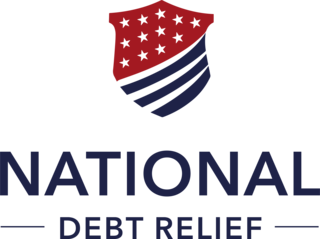Dollar Scholar Asks: When Should I Have the 'Money Talk' With Someone I'm Dating?

This is an excerpt from Dollar Scholar, the Money newsletter where managing editor Julia Glum teaches you the modern money lessons you NEED to know. Don't miss the next issue! Sign up at money.com/subscribe and join our community of 160,000+ Scholars.
I recently wrote about whether people should put credit scores on their online dating profiles. The reaction from experts, and I'm paraphrasing, was "hell no."
It got me thinking. Being on the same page about money is crucial in relationships: In a 2023 Northwestern Mutual survey, 35% of people said financial compatibility was more important than physical and intellectual compatibility. Advertising an 850 credit score on Tinder alongside your fish pic is overkill, but there has to be a less-awkward way to have that conversation.
How should I bring up money with a potential romantic partner?
Talking about money in a qualitative sense — rather than a quantitative one in which I show off said credit score — might be a way to kick off the discussion, says Julie Guntrip, head of financial wellness at Jenius Bank.
Early in a relationship, we're probably going to talk about our dreams and life goals anyway. I can use this opportunity to pick up clues.
Let's say Bachelor No. 1 tells me he wants to retire by age 50. I can respond, "Awesome. What is your plan for that?" Guntrip says. "If that person can talk about, 'Well, I've started saving this amount of my paycheck, and I max out on my 401(k),' you're going to get some information that that person thinks about money. You can compare — does that align with how you think about money?"
Ideally, these general conversations will give way to more detailed ones as I grow more comfortable with someone. (And as our relationship progresses: "If you're going to move in with someone and you're gonna commingle your money, those conversations do need to get tactical really fast," Guntrip adds.)
Sarah Darr, head of financial planning at U.S. Bank, says timing is the main factor to consider. Before diving in, I should ask myself: When does it make sense to bring up money? What, exactly, am I trying to accomplish or find out by doing it?
In that Northwestern Mutual survey I mentioned earlier, 10% of people said the major money conversation should happen in the first days and weeks of a relationship, 20% said it should happen after the initial stage of getting to know one another, and 42% said it should happen after we're serious but well ahead of marriage or living together.
(The rest of the respondents said The Talk should wait until moving in together, right before marriage or after marriage. The final 11% percent said the conversation should never happen.)
Clearly, the right time is different for everyone. But Darr says to wait until I've established that "yes, this is somebody that I feel like I trust" or "this is somebody that I see a future with."
"Then I think it's safe to start to get into the conversations," Darr adds.
It doesn't have to be a tense interrogation. As an example, she says, maybe I can mention to Bachelor No. 2 that I'm thinking ahead to tax season. I volunteer some information, saying I've already started the process of gathering my documents, and by the way, he's started his return, too, right?
"As you're dipping your toe into it, and you get a sense of, OK, we're on the same page, then I think you can really start to get into more serious conversations," Darr says.
I'd be remiss if I didn't mention romance scams here. It's becoming increasingly common for fraudsters to make fake dating profiles and/or social media pages in order to start conversations with strangers like me. We build a relationship, and then eventually they ask for money, often claiming it's for medical expenses, a plane ticket or to help them out of a tight spot.
According to the Federal Trade Commission, Americans reported losing $1.3 billion to romance scams in 2023.
The FTC's rule is to never send money (or gifts, for that matter) to someone I haven't met in person. Similarly, Darr says I should make sure I trust my partner before I start sharing my financial details with them.
I should also be careful not to jump to conclusions. If Bachelor No. 3 tells me he has a low credit score or a big student loan balance, it doesn't necessarily mean he's bad with money.
"It's all contingent on, you know, a series of priorities that person [has]," Darr says.
Fair warning: Guntrip says these conversations can be tough, honest and vulnerable. The willingness to engage can be a good sign, though, and the start of a journey where we learn how to improve our finances together.
"I think the red flag would be if you think you're at a stage in a [relationship] where you should be having those conversations, and that person is unwilling to have that level of commitment," she adds.
The bottom line
While listing my credit score on my dating profile is wayyy too heavy-handed, it's a smart idea to discuss finances at a time that feels appropriate in a relationship. I can do it through the lens of life goals or current events or whatever works for me, but I do need to take the plunge.
And talking about money might actually help me with my own. Guntrip points out that I might be surprised to learn another person has made the same errors or has more expertise that could help me. There's no need to feel ashamed.
"Don't shy away from a conversation," she says. "We've all made dumb financial mistakes, myself included, and things can always be turned around."
More from Money:
Should You Put Your Credit Score on Your Dating Profile?
Am I a Terrible Person for Worrying My Future Boyfriend Will Be Broke?
Dollar Scholar Asks: Is It Ever OK to Be Emotional With Money?





